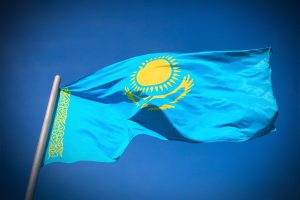On October 6, Kazakh citizens voted in a nationwide referendum on whether to pursue the construction of a nuclear power plant. According to preliminary results released by the Central Referendum Commission (CRC), 71.12 percent voted in favor of building independent Kazakhstan’s first nuclear power plant.
As scholar Togzhan Kassenova wrote recently for The Diplomat Magazine, “Whether and how Kazakhstan builds a nuclear power plant will impact the country’s future beyond the narrow issue of nuclear energy.”
“It will demonstrate how Kazakhstan will deal with its energy security challenges, manage its complicated geopolitical situation and relationship with Russia, and whether the government will live up to its promise of being a ‘listening state,’” Kassenova argued.
Reuters highlighted a comment from Almaty-based journalist and vlogger Vadim Boreiko referencing this final aspect. “I have come to the conclusion that the decision to build the nuclear power plant, and to build it with [Russian state nuclear firm] Rosatom, has already been made in [Tokayev’s office] and the people of Kazakhstan are being invited to polling stations as ‘notaries’ to authenticate this decision with their votes,” he wrote.
Nationally, 64 percent of eligible voters took part in the referendum, with a dramatically lower proportion in Almaty, the country’s largest city, where only 25 percent of eligible voters cast ballots.
RFE/RL reported that nearly 30 activists were detained ahead of the vote and protests against the nuclear power plant proposal were denied. On October 6, there were some reports of ballot stuffing and discrepancies between reported turnout and anecdotal witness accounts.
At a press conference on October 7, the Yerkіndіk Qanaty Foundation said independent observers of the referendum faced pressure, stating that at least three were removed from polling stations and another was attacked. At one polling station in Astana, an independent observer was accused by polling station staff of interfering in the election process by taking “photos, audio, and video recordings, violating the principle of observing the secrecy of the vote.” As the foundation noted at their press conference, however, under the election law, observers have the right to make photo, audio, and video recordings.
The foundation also noted that in its study of TV coverage of the referendum, citizens were presented a one-sided view of the vote: a push in favor of the nuclear power plant plan.
“69% of the content was about support for the construction of nuclear power plants, and in the remaining cases it was covered neutrally,” Kasiet Temirzahkyzy, one of the authors of the study said, adding that the core arguments presented highlighted Kazakhstan’s energy shortages, the economic advantages of a nuclear power plant, employment opportunities, and the narrative that nuclear power is environmentally friendly.
The location for the prospective plant, near Lake Balkhash, was not mentioned in media coverage.
Kassenova also observed this, writing that:
Kazakhstan’s government launched an active campaign to promote its nuclear power plant ambitions. This campaign often resorted to a heavy hand. Government-organized public hearings in several cities followed one script: presentations by authorized speakers in support of nuclear power with little opportunity given to opponents to express their views. On occasion, when opponents managed to take the floor, the microphones were switched off.
Now that the vote has concluded, the road ahead is long and uncertain. Kazakhstan is the world’s top uranium producer, but aside from three nuclear research reactors, its last nuclear power plant – BN-350, a fast breeder reactor – was decommissioned in 1999. That reactor took nearly a decade from the start of construction until its commissioning in 1973. The nuclear power plant will not solve Kazakhstan’s immediate energy crisis, even if construction were to start immediately (and it won’t).
Rosatom, the Russian state nuclear corporation, is among four contractors whose reactors are reportedly under consideration in Kazakhstan, in addition to France’s Électricité de France (EDF), China National Nuclear Corporation, and South Korea’s Korea Hydro & Nuclear Power (KHNP). The process for selection has not been clarified, but Moscow stands as the most likely partner. Russia is already partnering with neighboring Uzbekistan on the construction of small nuclear power plants, and Kyrgyz officials have floated similar ideas.
After voting in the referendum, Kazakh President Kassym-Jomart Tokayev said, “From my personal point of view, an international consortium consisting of global companies possessing advanced technologies should work in Kazakhstan.” The present geopolitical context makes that highly unlikely.
Tokayev suggested a referendum on nuclear power in June 2019, seemingly cognizant of the controversial nature of the question. But by 2021, he had labeled “phobias” regarding the dangers of nuclear power as “inappropriate” and said Kazakhstan needed to look at the issue seriously.

































